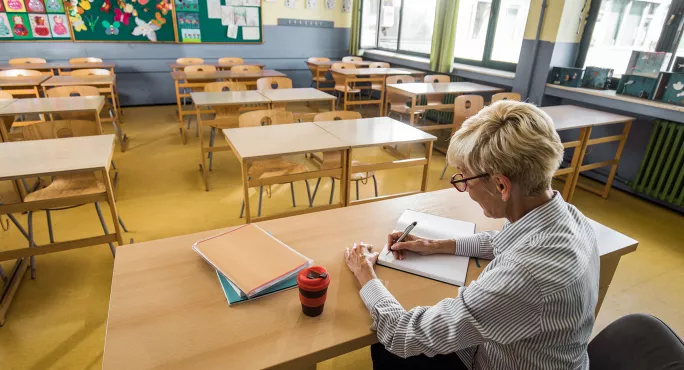The government should “seriously consider” breaking its contract with the provider of its flagship education catch-up programme, a senior MP has said.
Robert Halfon, chair of the Commons Education Select Committee, said that nearly £5 billion had been spent on education catch-up by the government, but that he feared “this funding is not reaching the most vulnerable children in our communities”.
Writing for the Conservative Home website, Mr Halfon said the National Tutoring Programme, contracted to Dutch recruitment company Randstad, is “falling far short of its targets and it’s not going far enough or happening quickly enough...despite significant investment”.
He said that the NTP “has the potential to be one of the greatest interventions made to date” to support pupils’ recovery from the impact of the pandemic.
“The government must look again at the contract with Randstad and seriously consider enacting the break clause. If Randstad cannot up its game, it is time to say goodbye,” he added.
Mr Halfon said that just half of schools in the North of England had engaged with the NTP, which aims to support pupils to recover lost learning from the pandemic, compared with over 96 per cent in the South.
In January, the education committee heard from headteachers that catch-up tutors provided by Randstad were “inconsistent” in quality and not always “very good with children”.
‘Problems’ with NTP tuition hub
In December 2021, Nick Bent, chief executive of the Tutor Trust, one of the partners delivering tutoring in schools under Randstad, told MPs that Randstad did not “have enough staff or the right expertise” and there were “problems” with the tuition hub.
“There are huge problems with the technology hub that is meant to organise all of the tutoring and some of us are still refusing to use that tuition hub because it’s so dysfunctional,” he added.
Mr Halfon drew attention to the fact that just 8 per cent of the tutoring sessions for this year have begun out of a target of 524,000.
He also warned that the advance notice released for exams, released on Monday, could benefit the most advantaged students.
Pupils have been given advance notice of the topics covered in some of their GCSE and A-level exams to mitigate the disruption to their education caused by the pandemic.
Mr Halfon said: “We know that over 13,000 children in exam years have not returned to school for the most part.
“So a system has been created where advantaged pupils will feel the benefit of the advanced notice, but their worse-off peers will struggle. Furthermore, we risk ignoring the 13,000 pupils in A-Level and GCSE year groups who have not returned to school at all.”




